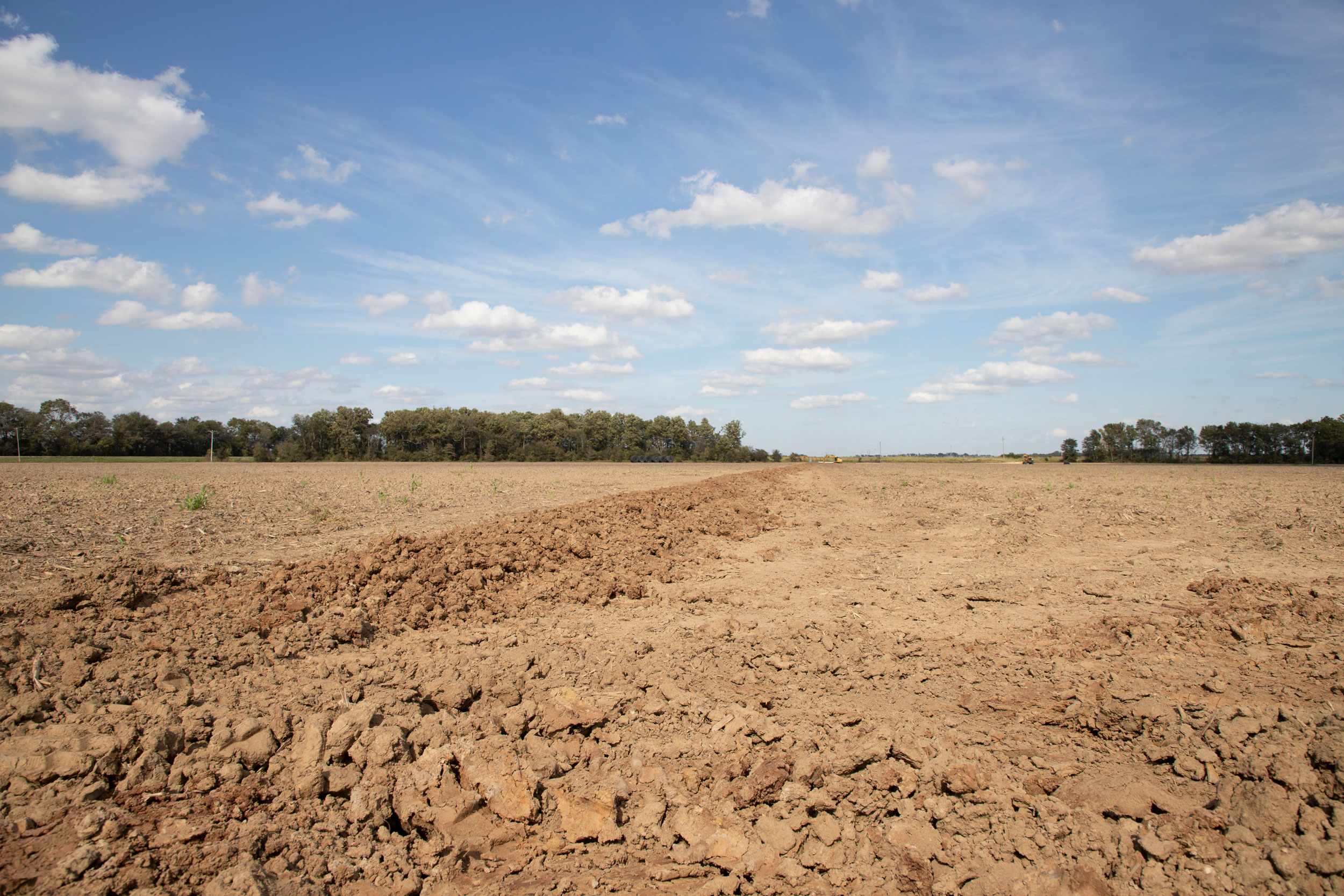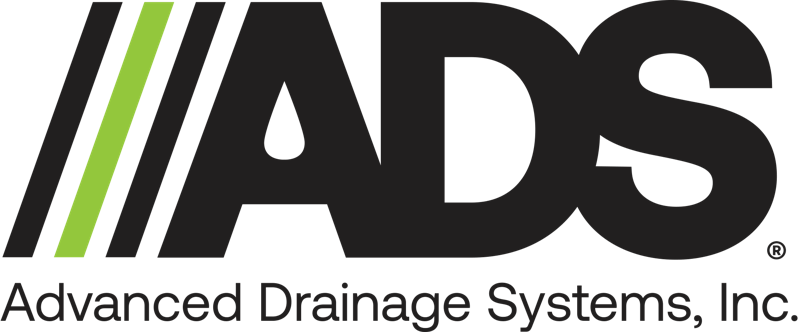Growth and Innovation
August 22, 2022 / 4 minute read
ADS Agriculture brings tiling to the Delta

Sharkey clay soil can get a bad rap. Out of all the different soil types, most clay soils are made up of the smallest and densest particles — making them extremely prone to compaction, which can cause drainage issues. But clay soils are not all bad; the density allows nutrients to be retained easily.
Today, a lot of southern farmers stick to crops that can survive high moisture levels due to the tricky nature of the infamous Sharkey clay soil and its distant relatives. It’s a solid strategy, but rather restrictive. That’s where water management comes in. Can a water management system reduce that restriction?
Locally grown crops, locally sourced data.
Water management via drainage and subsurface irrigation systems gives farmers extra flexibility, as they can experiment with row configurations and plant different kinds of crops — and not just the ones that can survive in high-moisture conditions. The right water management system allows farmers to break the boundaries of crop restriction and evenly distribute water throughout their fields.
Water management systems can increase yields up to 30% across the Corn Belt and in the Upper Midwest, where around 56 million acres of pattern drain tile is installed. However, agriculture in the South is completely different and local producers need research from fields with similar soils and conditions as their own.
To get a more tangible grasp on how agriculture tiling can improve clay-based soils, ADS partnered with Mississippi State University (MSU) in 2021 to install a water management system on two of its research farms in Mississippi: Starkville and Stoneville. The system was put in a 10-acre field and a 17-acre field. The pattern drain tile allows for field drainage and subsurface irrigation, as well as other irrigation methods for comparison. The research teams have since planted cotton and soybeans and are monitoring the results.
“The project has the potential to alleviate two of the most critical limiting factors in the Midsouth — drainage and supplemental irrigation,” said Jason Krutz, director of Mississippi Water Resources Research Institute. Supplemental irrigation is applicable for the Mississippi Delta in particular, as it is one of the most intensely irrigated agricultural regions in the nation and draws more than 90% of its irrigation water from the Mississippi River Valley Alluvial Aquifer. This water management system from ADS could help alleviate dependence on the aquifer, which would slow down any rate of depletion.
Matt Miles’ farm in Arkansas gets a facelift.
The excitement at MSU led to launching the ADS Tiling Project (also known as the Delta Farm Trials) at Miles Farms in McGehee, Arkansas.
“This year, we were able to get into our Sharkey Clay for pre-plant work up at least a week before we were able to get into our sandy ground,” said Matt Miles, member of XtremeAg and fourth-generation farmer. “Normally, we would be working our sandy ground first and then hitting the clay ground. This is a direct result of the tiling project we did with ADS.”
Miles worked with ADS experts to install a custom water management system designed specifically for his Sharkey clay farmland. The goal of the trial is to not only showcase the benefits that pattern tiling can bring to the Sharkey clay soil found in the Mississippi Delta, but also to research pushing irrigation water back through the drainage tile lines for subsurface irrigation. The drainage system collects water from various parts of Miles’ field using perforated plastic pipe and shuttles it to an ADS lift station. Water is then released into a designated ditch. The design allows for increased crop versatility in Miles’ clay-based farmland.
This same design set-up could allow for the recycling of water through a designated ditch or reservoir.
ADS water management systems are built for the South, too.
Utilizing pattern tile for drainage and supplemental irrigation in southern states could put farmers in the field earlier, increase yield, decrease water use and pumping costs, and add crop variety.
Tiling maximizes farmable acres and is projected to increase the crop yields in clay-based soils at a more cost-efficient rate. If the subsurface irrigation works on Miles’ farm, he will save 75% of his water costs because the need for it will be minimized.
“The amount of people that have questioned the capabilities of this system is quite funny,” said Miles. “This approach is new to the South, so people aren’t aware of what it can do yet. It has been an eye-opener in terms of how tile can radically change the way we farm our poorly drained clay soils down here in the swamp. We are excited about what the future holds.” The
Delta Farm Trials are still in progression. Results will be reported later this year
